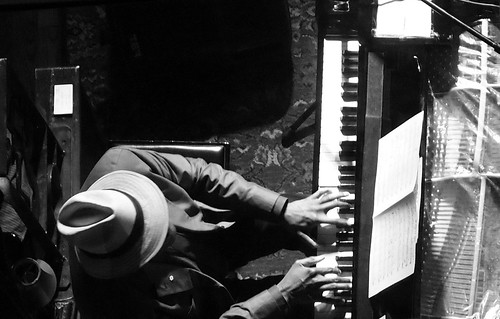Note to Readers. As you read this keep in mind I’ve been reading Michael Hyatt’s blog since 2007 and I still really enjoy it. (UPDATE – I stopped reading MH’s blog regularly a few months after writing this) Please read all of this in the spirit of grace and mutual understanding all of it is meant to be wrapped in. I have to ask the questions, but I want amiable solutions.
UPDATE as of July 11, 2013
Michael Hyatt continues to change his blog for the better. More women leaders are visible now (which wasn’t true almost at all since 2007!) and the site has come a long way since I started prodding for a more appropriate and equitable Platform for the Michael Hyatt brand a few short weeks ago.
What I think will also happen is that you will never hear about me and this incident as something he took into consideration. You will never hear him say any of this happened. He will continue to look wise and fair.
He unfollowed me Twitter and to him, I’m probably not a good leader. But, I wasn’t looking for a permission slip to make sure the right thing could happen.
UPDATE as of JULY 2
I’m happy to report that I just checked and Michael Hyatt has adjusted his homepage. Now the videos featured in the sidebar do include some women. VICTORY!
UPDATE as of JUNE 26
Joy Groblebe (claiming the title of Michael Hyatt’s manager) has weighed in below in the comments section saying Hyatt is a poor example of bias. Yet, he still does not have women featured in his video leader interviews See what you think! Is she right?
UPDATE as of JUNE 25!
The post you are about to read was written last week, published in a limited sneak-peak form, and announced on Twitter and Facebook at that point. Though Michael Hyatt has too seldom featured women, yesterday Michael Hyatt did feature his longtime friend, Michele Cushatt (maybe he read the preview of the post you will read below…I’m not sure. But, great timing I must say.). You can read her article here. (It’s about females experiencing rejection. Irony.)
I found out about this surprise and rare post through this personal note from Hyatt on Twitter this morning:
FROM: @MichaelHyatt mentioned “@lisadelay The irony of this is that @MicheleCushatt was featured on my blog yesterday: http://t.co/c560ZMQiBJ”

He didn’t see the irony… :)
The article is on REJECTION. Someting women leaders and speakers may be experiencing a lot with not just Hyatt (until recently), but also with publishers in general, as Michael explained in his Twitter posts. At this point, the vast majority of Hyatt’s blog guest posts are by men. Will it maintain the status quo of white male domination in leadership expertise? Time will tell if Intentional Leadership will evolve as a Brand that way. I have every hope it will grow more diverse and vital.
# # #
Background: This Spring (2013) I posted this (excerpt):
I’ve noticed something. Not too many male leaders list women authors, leaders, and thinkers in their blogrolls or refer to them in posts. You don’t see that women influence them. What about Christian male leaders? It seems twice as bad.
Michael Hyatt’s “Intentional Leadership” blog is a favorite of mine. I LOVE it. But have you noticed that not one video on his homepage sidebar features a female leader? Does he even realize the omission? Should he maybe be more intentional on this part….I think yes! Read the whole post here.
# # #
FINALLY- the post you’ve been reading this for.
POST WRITTEN JUNE 17.
What I didn’t get to do after that Spring post was follow up. I didn’t get to share Michael Hyatt’s direct correspondence with me that day. It’s far more interesting and surprising that I imagined it would be, and not for any of the reasons I expected.
Here’s that:

So why don’t females pitch to him? Isn’t that the bigger and more important question? Should we look into that maybe?
Then I asked him if he felt he was hearing from a balance of leadership voices, and here’s his reply:

I had presumed that Mr Hyatt would give my observation some thought. Maybe he would mention the need to assess he might have a blind spot.
Could there be an unconscious oversight? Were there ways to improve? But, he inadvertently offered up more than he may have realized. His comments only strengthened my contention that a gap, a regrettable gap, exists between men and women in leadership and visibility on his blog, website, but also across the board. This only gained momentum when he continued and mentioned the world of publishing. (see below. The older post is positioned on the bottom and is a continuation of his comment posted above.)

So by his admission the publishing industry (his experience as the CEO of Thomas Nelson is a Christian outfit) has a massive blind spot.
This is not a surprise, but certainly a disappointment. What are leaders like Hyatt doing to turn the tide if the gap is this vast?
I soon realized the aforementioned blind spots would stay largely “in shadow” that day, but it wasn’t a total loss. Hyatt did show a desire for improvement. [UPDATE – in subsequent blog posts he wrote about Blind Spots -though never did he mention this incident-perhaps it was a blind spot too.]

My exchange with Hyatt is long over and I wish him well. But, I have wonder: Has he for too long wasted his opportunity to his influence how we hear from leaders? Isn’t this the blindness that success and privilege creates?
I’ll let you decide.
APPENDIX:
Others weighed in during our Twitter conversation and things stayed interesting for most of the day, that Spring. Here are just two examples:


Yes, Hyatt has every right to feature only those he pleases, but mentioning that he doesn’t hear from women at the same time as mentioning that he only features “the best” seems deleterious.
Through his leadership we are left to wonder: Are “the Best” really predominantly male? or is Hyatt actually gleaning from a skewed pool?
Nah.
More importantly, does he realize it and will things change “on his watch”? I don’t think both his claims can be true unless he holds a disparaging view of women in leadership.
And, mind you, I don’t believe he does. I think it’s a genuine blind spot from a well-intentioned male leader (with the current #1 blog on Leadership) who hasn’t quite comprehended or addressed the light-skinned, male privilege he is privy to.
Sometimes a cautionary tale gives us a great lesson. We should learn from this:
None of us are immune to blind spots of our particular privilege.
We must be diligent agents of progress and positive change. That’s my own hope and the reason I have decided to continue the conversation today. The more of us who ask the tough questions of the powerful and prod for the answers and the transformation needed, the better off we will all be. Won’t you join me? To help, Leave a comment or share this post.
SO! Who are the “BEST VOICES”?
In truth, we don’t hear from the “best voices” by doing a google search and poking around. They don’t get pitched to us by the establishment. The “best voices” may not turn up or asked to be heard. Sometimes because it’s too noisy and sometimes it’s because they assume they are not wanted. The stats do not favor minorities (women, the poor, the physically or mentally disabled, the marginalized, and people with darker skin tones), they favor the already powerful.
This means that if you indeed want to have “the best” you must make extra efforts to find and hear from those who don’t have an equal shot. You have to work much harder at it, plain and simple.
As leaders we should admit this. To continue the conversation online please use the hashtag #bestleaders and others can follow the digital footprint and continue onward in the pursuit of improvement
These hard-to-find voices have plenty to offer even if they don’t quite have the following as of yet. The stats don’t make the leader, the character and efficacy does. I think we can all agree there.
In the next post, I’ll talk about the subtle ways language reenforces privilege, especially in the poor opinions and myths perpetuated about women–often unintentionally. It’s sobering. However, I’m skewering the topic not with a pitchfork but a rubber chicken. The point, and my point, isn’t to make enemies, it’s to start the conversation and act as a change agent.









